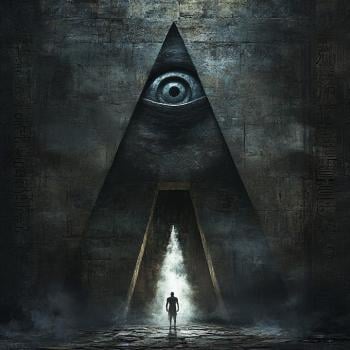Is the alternative to do like Moses, demand that Pharaoh "Let my people go"? Surely it is. But from what do we demand our brothers and sisters be let go? Christians were at the forefront of the abolitionist and civil rights movements. Many were heavily involved in the fight for women's suffrage. Some have been involved in working for freedom from political oppression and poverty in Central and South America and other places. Others are engaged in freeing those who live in slavery today.
Surely no one would deny that these have been and continue to be things that Christians should involve themselves in. If we do not serve the poor, the maimed, the lame, and the blind, we do not imitate he whose name we claim. But even in such service we can find ourselves colluding with the world. We do so when we do not ask what it is the people are to be freed from. For we may allow the world to tell us what it means to live a Christian life, colluding with it in the way we understand our religion and its demands to serve. We must ask not only whether to make Moses' demand of Pharaoh, but how to make that demand.
Modern democracy has understood liberation to be liberation from oppression, poverty, and physical frailty. Though we seldom recognize it, that understanding is essentially theological: modern democracy seeks to incarnate the salvation of liberation from oppression, poverty, and disease in the world. In doing so it imitates, perhaps even parodies, Christianity. Modern democratic culture offers an alternative understanding of salvation, and sometimes we collude with the world by adopting that imitation and parody as if it were Christianity. (Or we use the existence of such an imitation as a reason to reject the need to undo disease, poverty, and oppression, another collusion.)
In contrast to the world, the Christian notion of liberation and salvation is not liberation from anything. It is liberation to a way of living in the world given through Jesus Christ. The Hebrew Bible, the Christian New Testament, and the Mormon Book of Mormon all make clear that liberation to the life of God entails also liberation from oppression and poverty. Those who suppose that Christianity does not entail that second liberation are not Christians at all (James 1:27; 2:20). But our scriptures make it clear that liberation to godly life does not mean only that.
What would liberation from poverty mean if the only result were that, finally, everyone was an equal member of a mindless consumer culture? We might paraphrase scripture: "Liberation-from ought we to have done, and not to leave liberation-to undone" (cf. Matt. 23:23). Without liberation to godly life, liberation from ills and evils would mean merely a more comfortable nihilism: comfortable but meaningless lives. Collusion with the world means collusion with that nihilism, the choice of comfortable meaninglessness over meaningful labor in the world (Moses 5:1).
It is rarely obvious how to avoid that collusion. It requires continued thought and effort, remembrance that our calling is to liberate people to God without forgetting that such liberation is also work to liberate them from pain and suffering. Or it requires the same kind of effort to recall that our calling to liberate people from pain and suffering is pointless if we do not help them be liberated to God.
"The kingdom of God is near" (Mt. 3:2) is a challenge as much as it is a revelation, a challenge for us to see the kingdom's invisible nearness and to live in the world in a way that incarnates that nearness in concrete terms. As God's creations, living in a world given to us by him, with others of his children, Christians are obligated to redeem and transform the world of Ahab, Jezebel, and the Pharaoh. We are to redeem and transform it here and now rather than in some ideal future. But we are also obligated not to collude with Ahab, Jezebel, and the Pharaoh in working out that redemption and transformation. That is the more difficult part.
James Davison Hunter (whose book I highly recommend: To Change the World: The Irony, Tragedy, and Possibility of Christianity in the Late Modern World) refers us to Jeremiah 29:4-7 to help us understand what it means to be a Christian in today's world: "The people of Israel were being called to enter the culture in which they were placed as God's people—reflecting in their daily practices their distinct identity as those chosen by God" (278).
We too are called to enter into the cultures in which we find ourselves, as a blessing to those cultures. But we must remember that we can be that blessing only if we remain God's people. Only by never forgetting that we are God's people can we avoid colluding with Ahab, Jezebel, and Pharaoh.





